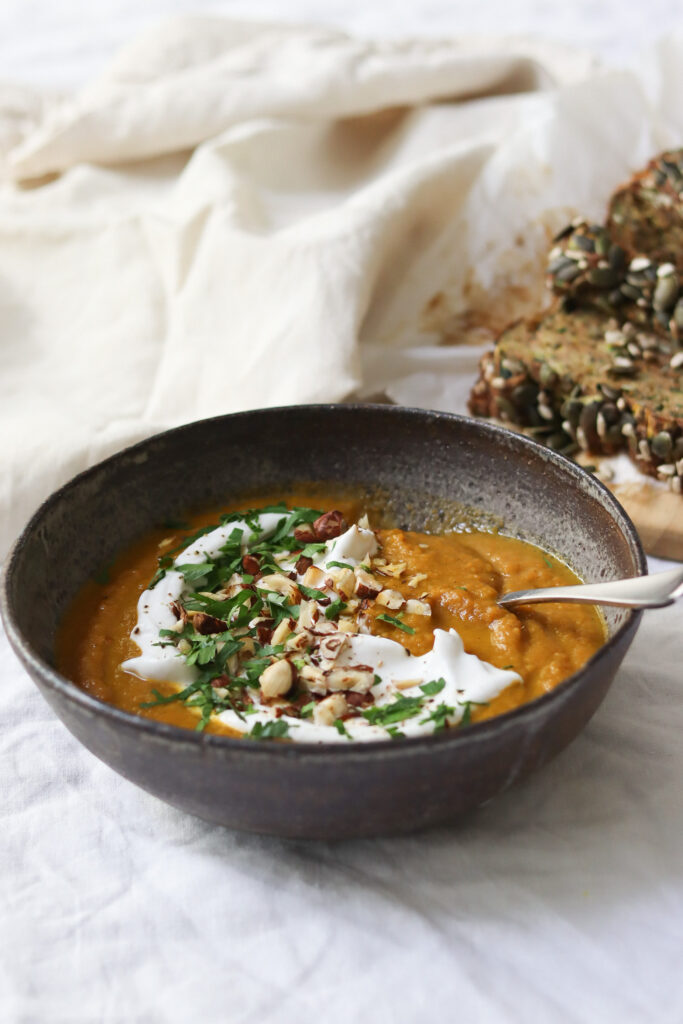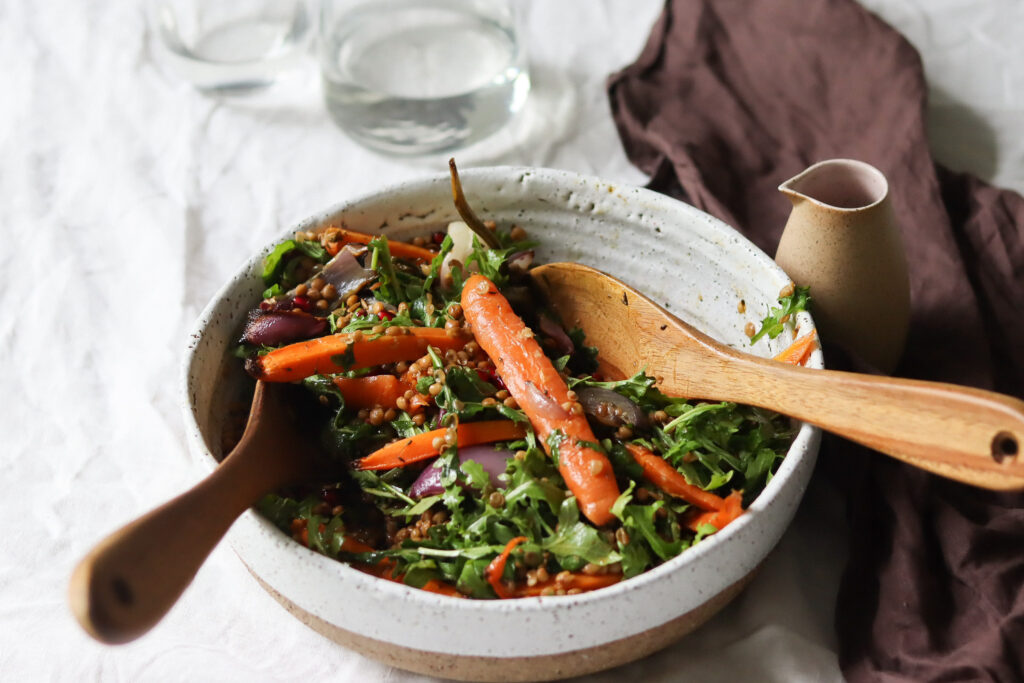Let’s talk about your metabolism. A common phrase in the health and wellness space, we associate “metabolic boosting” foods, exercises and supplements with calories and weight loss. But what really is our metabolism, how do we control it to support a healthy metabolic rate?
Our metabolism is the process in which our bodies break down and convert food into energy, and harness that energy to power our bodies. Your base metabolic rate is the speed of which your body burns calories during a rest state. Which means, it goes beyond high-energy exercise and eating spicy foods. A combination of lifestyle factors including your nutrition, exercise and sleep patterns all contribute towards improving your metabolic rate and ability to convert food into energy between workouts.
So what happens when our metabolism slows? Rather than convert food to energy, our bodies store this food which impacts our general health and fitness and causes underlying weight, gut and skin health issues.


Here are my top 5 ways to support a healthy metabolism.
- Increase your protein intake. Protein not only increases your satiety hormones (keep you feeling fuller for longer) but requires more energy expenditure than fats and carbohydrates.
- Nourish your gut microbiome. Your gut is made up of good and bad bugs which controls how your body responds to and breaks down food. Good bugs support a healthy digestion to boost your metabolism. Here are some ways to nourish your gut microbiome.
- Eat a variety of different vegetables, fruits, nuts and seeds (aim for 30 different plants each week)
- Eat a rainbow of fruits and vegetables. Each colour of fruit and vegetable brings a variety of vitamins and minerals essential to nourishing your gut.
- Allow your digestive system to rest. While starving your body can do the opposite effect of nourishing your gut, it is important to allow your gut microbiomes to reset and cleanse between meals. Rather than continuous snacking, aim for a balanced snack or meal every 4 hours.
- Limit your intake of processed foods. Overly processed foods are actually easier to digest and absorb the fats and sugars. This processing depletes foods of any nutritional value, which starves your gut microbiome and slows your metabolism.
- Prioritise your sleep. When we sleep, our digestive system can reset and recalibrate. A solid sleep controls blood sugar spikes the following day.
- Move your body. It goes without saying, exercise is essential to a healthy body and mind and plays an important role in your metabolism. However, you might associate metabolic boosting exercise with HIIT and cardio. While a balance of cardio and strength is important, your muscle mass will increase the energy your body burns between workouts. The combination of strength training and functional movement, with short bursts of cardio (try skipping, boxing, running or walking) will boost and burn your energy to increase your resting metabolic rate. Have you tried working out in the cold? Not only is your body burning energy from the exercise but you are working harder to keep the body warm.
- Consider when you eat. You might think the key to burning energy and losing weight is by limiting your food intake, however this is not always the case. Excessive fasting or starving your body or calories actually slows your metabolism. Your brain tells your body to store fat cells, rather than burn them, to prepare for a famine. Eating regular, mindful meals will prevent feelings of starvation which often leads to bingeing or overeating. Your first meal of the day kick starts your digestive system and metabolism, and stabilises your stress and insulin hormones. A combination of protein, whole grain carbohydrates, healthy fats and plants will stabilise your hormones, fuel your gut microbiome and support your digestive system for a healthy metabolism.


While there is no “quick fix” to optimising your health, boosting and supporting your metabolism does not have to be complicated. Here are 7 steps to reignite your metabolism in 7 days.
- Complete 20 minutes of strength training (Fluidform) and 5 minutes of cardio (skipping) every day.
- Eat 30 types of plants (vegetables, fruits, nuts and seeds). This does not include processed fruit juices, roasted or salted nuts or vegetable chips.
- Eat breakfast within 2 hours of waking and include a protein, whole grain carbohydrate and natural fats.
- Sleep for 8 hours each night.
- Remove all processed foods from your diet.
- Eat protein with every meal.
- Drink 2L of water every day.






